When Thor Became the Strongest Avenger
The handling of Thor’s depression in 'Avengers: Endgame' - which was released five years ago this week - was a transformative moment for the character, the MCU, and all superhero films
Avengers: Endgame was released on April 26th, 2019. Five years later — this week, in fact — the conclusions of Iron Man and Captain America’s journeys still monopolize conversations about the film.
But the reality is that Iron Man’s was the culmination of an arc that felt over with four Iron Man appearances earlier and Cap’s is a graceful, beautiful bow out, sure, but one that follows a traditional hero’s quest — to get back to the ones he loves. Both these endings move us, but they’re also both conventional in almost every sense.
Thor, though…well, Thor is another matter.
What I’m talking about is Thor’s weight gain in Endgame, the result of PTSD and depression - which were brought about by the deaths of his entire family and 75% of Asgardians, as well as his guilt at failing to decapitate Thanos before the Mad Titan snapped his fingers and killed half the universe.
In many articles I’ve read on the subject, it appears as if the screenwriters and directors initially intended to primarily use Thor’s weight gain more as a source of humor to resolve at the midpoint. Tony Stark calling him “Lebowski” being the best example of this fat-shaming humor.
Interestingly, it was star Chris Hemsworth who insisted on Thor not magically (conveniently) recovering his godly shape at the conclusion of Endgame. Hemsworth’s instincts were correct, but also so very beautifully human.
Because Thor’s journey as it showed up onscreen in Endgame is so much more than a gag. In fact, it is wildly unique for a big-budget action film, especially a superhero film, because it’s not just real. It’s ugly real. The God of Thunder is truly brought to his knees by the tragedies inflicted upon him, no different than we mere mortals are by every tragedy that is hurled at us.
The “fat Thor” we find five years following the Snap is suffering from profound depression because of this. Weight gain is not why he no longer feels worthy. Or rather, it’s a symptom of his depression, not the cause of it.
It is Thor’s mental health that makes his ultimate journey in Endgame— the one that made it to the screen — so unique in superhero films and so remarkable in the pop-culture conversation. He’s a superhero suffering from monumental loss, debilitating grief, and serious clinical depression - and yet, when Thor holds out his hand and Mjolnir returns to him, he is still worthy!
Despite the depression, Thor rediscovers what makes him a hero and, along the way, recognizes how expectations crippled his ability to be who he truly is - the strongest Avenger.
When I think about Endgame, I think about a lot of moving moments. Black Widow’s sacrifice. Dr. Strange holding up that one finger. “I am Iron Man.” Especially Cap’s happy ending and the passing of the shield to the Falcon (“I don’t feel like it belongs to me.” “It does.”).
But I think of no moment more than Thor’s face when he discovers he is still worthy.
If this article added anything to your life but you’re not up for a paid subscription, please consider buying me a “coffee” so I can keep as much of this newsletter free as possible for the dreamers who couldn’t afford it otherwise.
If you enjoyed this particular article, you might also dig these:




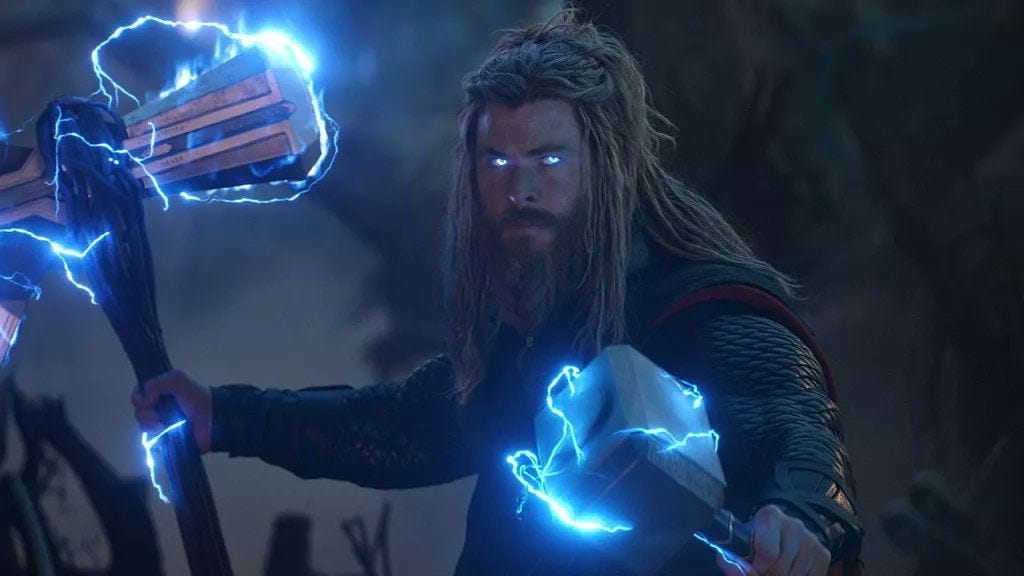
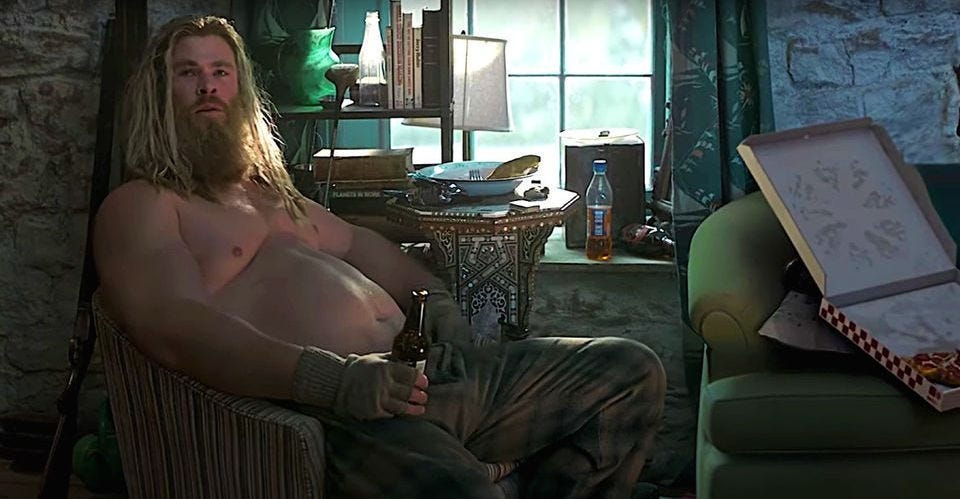
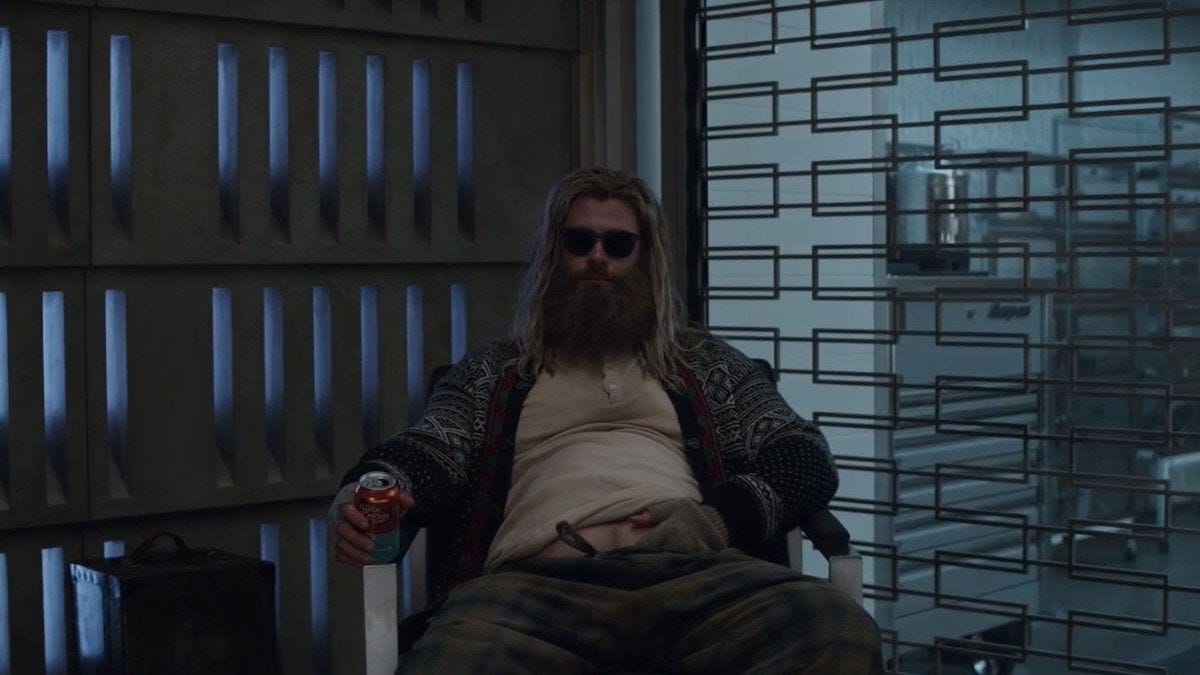
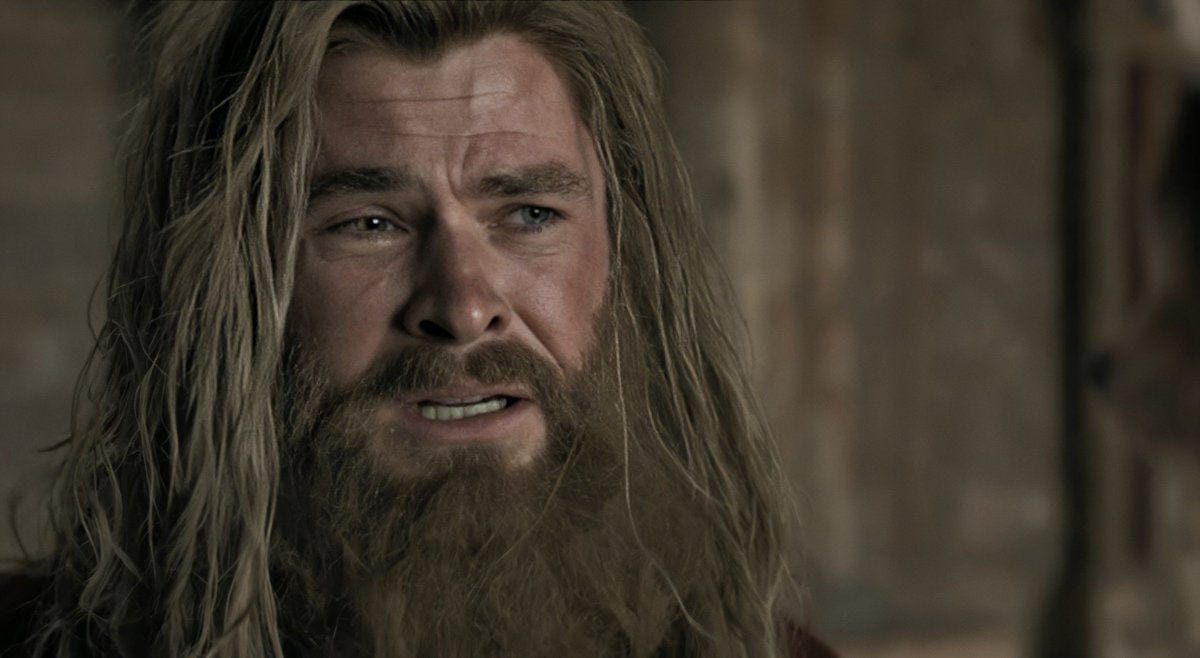
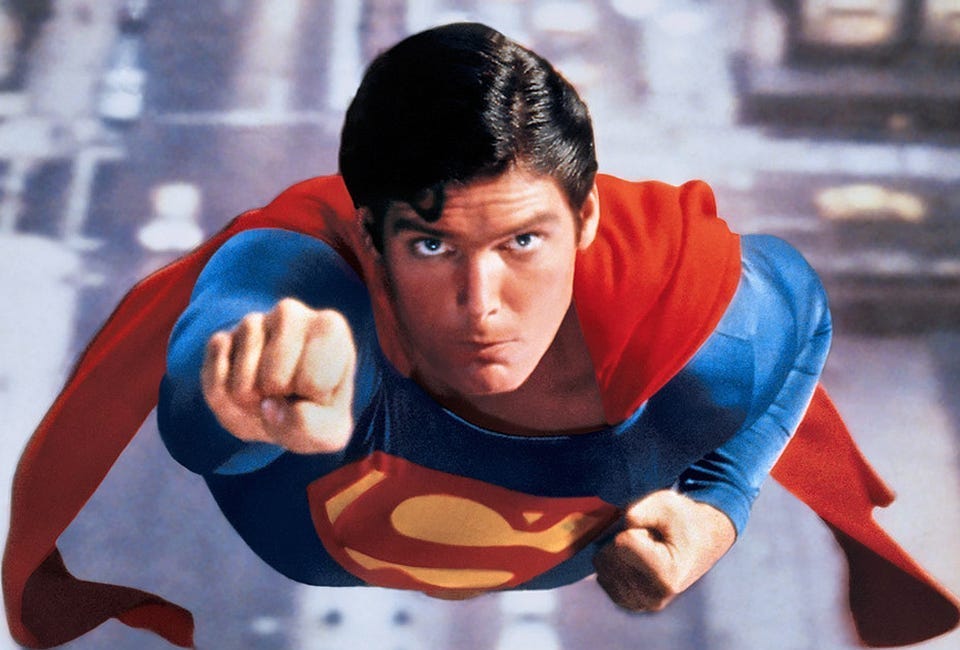
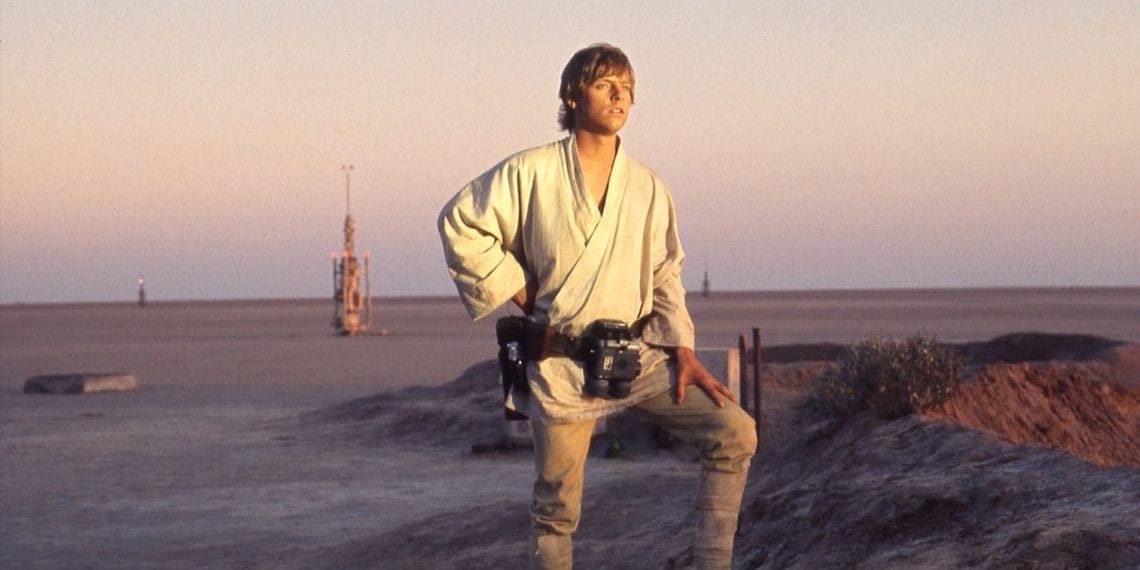

Captain America will always be my favorite. I'm just too nostalgic for the guy.
I always thought Thor looked more badass at the end with the extra weight anyway. That is an excellent analysis of his character. I am curious to see how they write him moving forward. Will he be even more flippant and jokey? Or maybe more serious now? That is one thing about Thor: He has a hell of a range of directions he can go and be portrayed well. He is a complicated character.